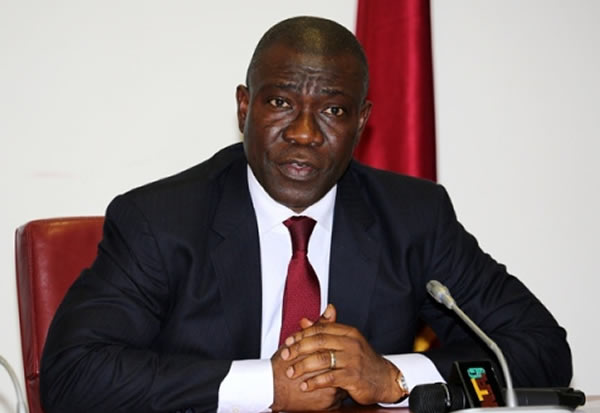Legal battles between the Federal Government and the Deputy Senate President, Ike Ekweremadu, began yesterday before the Federal High Court sitting in Abuja over the move for and against the temporary forfeiture of about 22 houses belonging to the latter.
The Federal Government, through its counsel, Festus Keyamo, SAN, had approached the court through a motion ex-parte dated March 21, seeking an interim order for temporary forfeiture of alleged undeclared properties belonging to Ekweremadu.
However, Ekweremadu, through his counsel, Chief Adegboyega Awomolo, SAN, appeared in court to stop the hearing of the said motion.
Under the law, when an ex-parte motion is to be heard, the other party is not expected to be in court.
The Federal Government had premised its application on the ground that without the court order attaching/forfeiting the said properties, “the likelihood of the frustration of investigations, as well as the dissipation of the said properties is very high”.
The Federal Government further submitted that the matter was of utmost public interest and concern, and as such, “an order will enable the government to carry out a thorough investigation into the activities of the respondent in the acquisition of the said properties as it relates to the allegation of a breach of Code of Conduct for Public Officers”.
The government also contended that the interim order would lapse as soon as investigation and further inquiry by the Special Presidential Investigation Panel for the Recovery of Public Property was concluded.
The applicant also submitted that the respondent might face possible arraignment after investigations.
Representing Keyamo at yesterday’s proceeding, Bala Dakum, informed the court that being an ex-parte application, ordinarily, the respondent was not supposed to be in court, not to talk of being heard.
He informed the court that while waiting for the court to fix a date for hearing of the motion, the respondent filed an application, seeking to be heard.
He further informed the court that he had filed a counter affidavit in opposition to Ekweremmadu’s application.
On his part, Awomolo told the court that he equally filed two applications on March 26, 2018.
He submitted that the first application was praying the court for leave to be heard in the motion ex-parte.
He also told the court that he has filed a counter affidavit to depositions contained in the Federal Government’s ex-parte application.
He also noted that the second application wants the court to decline jurisdiction and exercise of judicial power and consequently strike out or dismiss the motion ex-parte.
Specifically, Awomolo based his application on the ground that the special panel was unknown to law.
“The body that brought that motion ex-parte does not exist in law. We are challenging the constitutionality of its existence” Awomolo stated.
After hearing the counsels, the trial judge, Justice Binta Nyako, severed the two applications filed by Ekweremadu, and held that the first one should be heard.
The court later adjourned the matter to April 26.
However, in opposition to Ekweremmadu’s application seeking to be heard, the government stated that all it seeks to do at this stage is to obtain an order of court stopping Ekweremmadu from dissipating the assets in question while investigations are ongoing.
The government is claiming that it is not seeking to permanently deprive Ekweremadu of the use of his properties.
It further averred that the application of the respondent “is a delay tactics to frustrate the substance of this suit as there are reports that the respondent is already hurriedly selling off the assets in question”.
Consequently, “based on the submission and legal authorities canvassed, we urge my Lord to dismiss the application filed by the applicant as same has no merit.
















